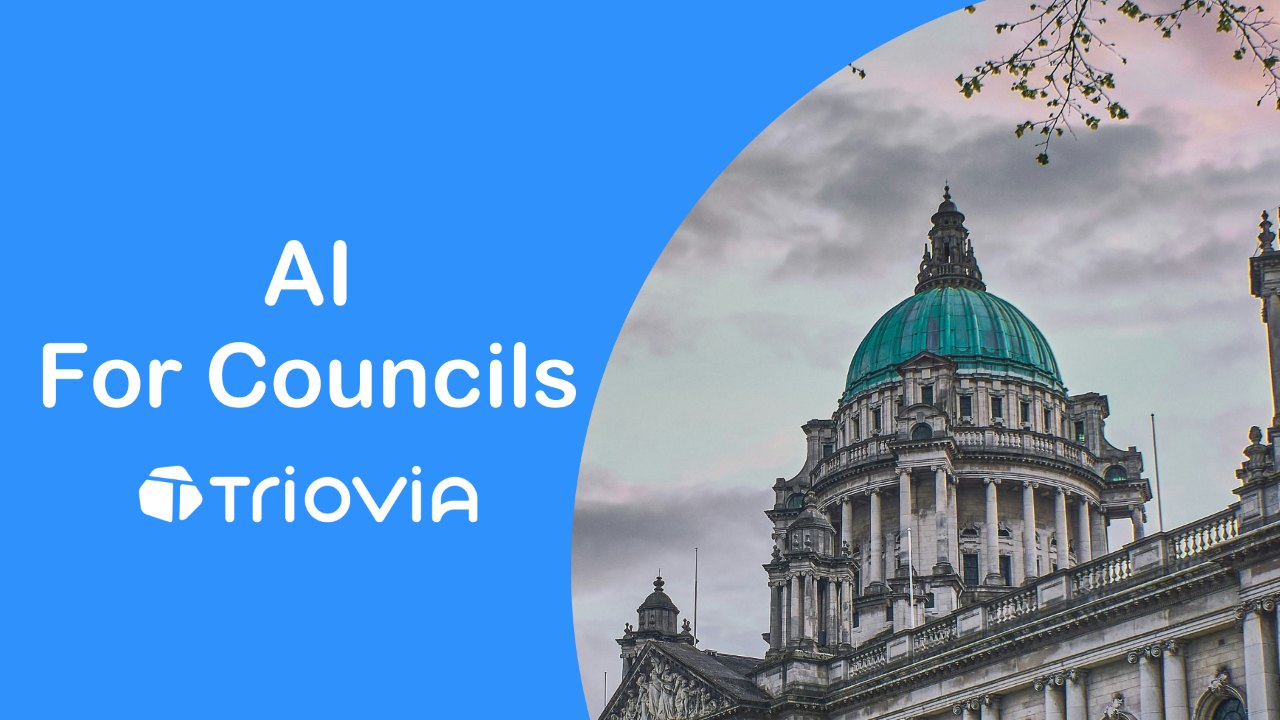How Can Councils Use AI? Practical Applications for Local Government
Mar 19, 2025
In our conversations with council leaders across the UK, we're finding growing interest in how artificial intelligence might help address the pressing challenges of limited budgets and increasing service demands. But beyond the buzz, what practical applications are councils already exploring?
Moving Beyond the Hype
While AI might conjure images of science fiction, today's applications in local government are far more practical—focusing on streamlining operations, improving service delivery, and supporting better decision-making.
Data Management and Analysis
One of the most immediate benefits for councils is AI's ability to process and analyse data at unprecedented speeds:
- Complex data sets: AI systems can quickly identify patterns across housing, social care, and environmental services data that might take staff weeks to analyse manually
- Predictive maintenance: Some councils are using AI to anticipate when roads or council properties will need repairs before problems become costly
- Resource allocation: Machine learning models are helping optimise everything from bin collection routes to staff scheduling
Communication and Administrative Support
AI tools are increasingly helping councils manage communication workloads:
- Document processing: Automatically sorting, summarising and routing incoming correspondence
- Meeting transcription: Converting recorded meetings into searchable text with automated action point extraction
- Content creation: Generating first drafts of website updates, social media posts, and resident communications
Planning and Environmental Services
Several councils are finding valuable applications in planning and environmental management:
- Planning application review: Pre-screening applications to identify common issues
- Green space mapping: Using satellite imagery analysis to monitor biodiversity and tree coverage
- Waste management: Identifying fly-tipping hotspots through image recognition
Social Care Innovation
Perhaps most promising are applications in social services:
- Early intervention: Identifying households that might benefit from preventative support before crisis point
- Service matching: Helping connect residents with the most appropriate services based on their specific circumstances
- Trend analysis: Forecasting future care needs based on demographic shifts and historical service data
Getting Started Responsibly
For councils considering AI implementation, starting small is often most effective:
- Identify a specific problem where AI might help (rather than adopting technology for its own sake)
- Ensure proper data governance is in place
- Begin with a controlled pilot before wider rollout
- Maintain clear human oversight of all AI-supported processes
- Regularly evaluate outcomes against objectives
Important Considerations
While the potential benefits are significant, it's essential to remember:
- AI systems augment rather than replace human judgment
- The quality of outputs depends entirely on the quality of data and training
- Council staff always remain accountable for decisions, even when AI-assisted
- Clear policies on transparency and data use are essential
The Path Forward
As AI tools become more accessible and affordable, even councils with limited technical resources can begin exploring appropriate applications. The key is approaching implementation thoughtfully—focusing on resident needs rather than technology for its own sake.
The Insider
We hate SPAM. We will never sell your information, for any reason.


